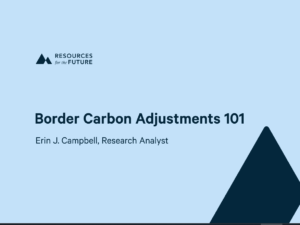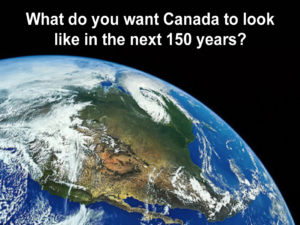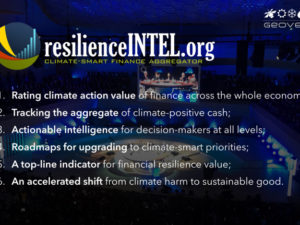Cathy Orlando (CCL Sudbury) and Gerry Labelle (CCL Nickel Belt) wrote a colloquy that highlights why they are hopeful about Canada transitioning to a low carbon economy. The contents are based on recent editorial packet developed by Cheryl McNamara (CCL Toronto): Should Canada’s Climate Change Plans be Trumped .
GERRY: Since the US presidential election, I am hearing people say that Canada should rethink its national carbon pricing policy.
CATHY: Really? Canada should not trump its carbon pricing policy.
GERRY: (Drum roll, cymbol crash and then eye roll). Seriously, what do you mean by that?
CATHY: What many people know and most people are now realizing, the trend to clean energy is irreversible.
GERRY: Let me play devil’s advocate Cathy. Wouldn’t scrapping our national carbon pricing policy make us more competitive?
CATHY: Au contraire, mon amie. (On the contrary my friend).
GERRY: Expliquez s.v.p. (Explain please).
CATHY: Canadian businesses are poised to capitalize on the clean energy market globally now that we have the Pan-Canadian Framework on Clean Technology and Climate Change. And here are three words that will resonate with the incoming administration: Border Tax Adjustments. And they are three words everyone should all learn.
GERRY: Uh oh, here comes the wonky explanation. What is a Border Tax Adjustment?
CATHY: Border tax adjustments specifically for carbon are also called a border carbon adjustments. To level the playing field, border tax adjustments can be applied to goods imported from countries that do not price carbon. This adjustment would discourage businesses from relocating to where they can emit more CO2, and encourage other nations to adopt an equivalent price on carbon to avoid the adjustment.
GERRY: The words I am encouraged by are “discourage businesses from relocating”. And think about it. This could make Canada more independent. And, sorry, it is not the Canadian nature to bend to bullying. But is this legal?
CATHY: Border tax adjustments allowable under the World Trade Organization. Being Canadians we can be polite about it too. We can give our trading partners a three-year head’s up that Border Tax Adjustments will be coming into play.
GERRY: And isn’t there a precedent for this with the Montreal Protocol that dealt with Ozone depleting chemicals?
CATHY: Yes, the Montreal Protocol included border tax adjustments. I am going to play the teacher right now. Explain to me in plain English border tax adjustments.
GERRY: For products coming into Canada from countries that don’t have a carbon tax, a border tax adjustment will be applied at the Canadian border and that money would go to Canada. If countries want to sell products to Canada and don’t want to pay a border tax adjustment, they too must have an equivalent price on carbon. Similarly, a Canadian company selling its goods to countries without carbon fees or taxes will be refunded the carbon tax paid thereby not disadvantaging Canadian companies. It is a win-win for Canadians.Is there public support to transition the economy, Cathy?
CATHY: Yes there is public support. In a recent poll conducted by Abacus Data at the request of Clean Energy Canada, 70 percent of Canadians want the country to “shift its energy use as quickly as possible to cleaner, lower-carbon sources of energy and away from fossil fuels.”
GERRY: Great!
CATHY: As our friends at Canada’s Ecofiscal Commission pointed out in a blog on November 11: “Smart, well-designed carbon pricing that addresses competitiveness concerns still makes economic and environmental sense,” adding “for now, keep calm, and carry on.”
Thus, with both economic and environmental incentives, backed by strong public support, keeping calm and carrying on in spite of the current U.S. landscape is sound advice. In conclusion, Canada 10 : US zero.
Here is the audio version of colloquy from Kootenay Coop Radio. Note it was slightly edited and it is a conversation between two women (3.5 minutes).
CHECK OUT THE KOOTENAY COOP RADIO: “Like” their FB page: https://www.facebook.com/ClimateofChangeRadio/ and check out their podcast page: http://www.kootenaycoopradio.com/index.php?/radio-show/show/climate_of_change/











